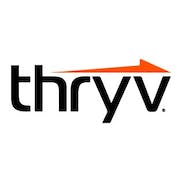Looking for the best review management software? Our ultimate buyer's guide has got you covered. Discover tools for managing your online reputation and boosting customer satisfaction.
A customer's online review can make or break a business. With the vast amount of resources available on the internet, customers have the power to influence the perception of a company with just a few clicks. As a result, it's more vital than ever for businesses to manage their online reputation effectively. This is where review management software comes into play. By leveraging the power of this technology, businesses can streamline the process of managing their online reputation, easily monitoring and responding to customer reviews across multiple platforms. In this buyer's guide, we'll dive deep into this field, exploring the key features and benefits, and ultimately helping you find the perfect solution for your business.
What is review management software?
This is a vital tool that allows businesses to manage, monitor, and analyze their customer reviews across multiple platforms. In essence, it simplifies the tedious task of gathering feedback and enables businesses to make informed decisions based on the responses received. Below are its most common use cases:
- Track and monitor reviews: Businesses can easily track and monitor their reviews from various websites, using this tool; thus giving them the ability to respond timely to customer feedback.
- Analyze customer feedback: An essential feature of a review management program is the ability to analyze feedback. It uses algorithms to detect sentiment, review frequency, and other indicators that give businesses insight into their customers' needs, expectations, and behaviors.
- Improve products and services: This system allows companies to analyze customer feedback, while identifying areas of their products or services that need improvement while also recognizing areas in which they excel.
- Enhance customer experience: By tracking customer reviews, corporations can improve their customers' experience by addressing specific feedback in real-time while also showcasing positive reviews to boost customer loyalty.
Several types of companies across various industries can benefit from this review tool. Here are some examples of the industries that commonly use this platform:
- Hospitality: hotels, restaurants, and cafes.
- Retail: online shops and physical storefronts.
- Healthcare: hospitals and clinics.
- Financial services: banks, insurance companies, and investment firms.
- Automotive: dealerships and repair shops.
What are the benefits of utilizing a review management tool?
This is a powerful tool for managing and monitoring online reviews, feedback, and comments from customers on various platforms, including social media channels, review sites, and search engines. Here are the main benefits of utilizing this solution:
- Improve customer satisfaction: Review management technology can help you stay on top of customer feedback, respond promptly to negative reviews, and address any concerns or questions that your customers may have, which can improve overall customer satisfaction.
- Boost online reputation: Online reviews are one of the most important factors that influence customer buying decisions. This application can help you increase the overall number of positive reviews, improve your online rating, and build a strong online reputation for your business.
- Stay ahead of the competition: With this management software, you can keep track of what other businesses in your industry are doing, monitor their reviews and ratings, and identify areas where you can improve your own products and services.
- Increase revenue and ROI: Positive online reviews attract more customers to your business, which can lead to increased revenue and a higher return on investment. A review management system can help you identify areas where you can improve your products and services, which can ultimately lead to more sales.
- Improve operational efficiency: It can provide you with valuable insights into your customers' needs and preferences, which can help you make more informed decisions about your business operations and marketing strategies.
10 key features of review management software
As businesses strive to thrive, online reviews have become a major factor in their success. A review management app makes it easy for businesses to manage and respond to reviews across multiple platforms, from Yelp to Google Reviews to social media. Here are the top 10 common features of this essential tool:
1. Review monitoring and notifications: With review management software (RMS), businesses can stay on top of all customer reviews and receive real-time notifications when a new review is posted.
2. Review aggregation: An RMS tool can aggregate all reviews from multiple platforms into a single dashboard so businesses can see all their reviews in one convenient place.
3. Response management: Responding to customer reviews can be time-consuming, but this package makes it easy to manage responses across multiple platforms from a single dashboard.
4. Customized response templates: To save even more time, businesses can create customized response templates to quickly and efficiently respond to reviews. Businesses that reply to reviews at least 25% of the time have an average of 35% more revenue. Customers view businesses that engage with reviews more favorably, potentially increasing sales by up to 49%.
5. Review analysis and sentiment tracking: It can analyze customer reviews and track sentiment to help businesses understand what customers are saying about them online.
6. Competitor analysis: It can also track and analyze competitor reviews, providing businesses with valuable information about their competition.
7. Review solicitation and management: Some review management solutions also include tools to solicit and manage customer reviews, making it easy for businesses to gather feedback and improve their online reputation.
8. Reporting and analytics: It typically includes reporting and analytics tools to help businesses track their review performance over time.
9. Integration with other tools: The solution can often be integrated with other marketing and customer relationship management tools to make it easy to manage all customer interactions from a single platform.
10. Multi-location management: For businesses with multiple locations, review management technology can provide centralized management of reviews across all locations.
Key considerations when buying a review management solution
Online reviews can make or break a business, and managing them effectively is critical for business success. An RMS provides a centralized platform to monitor, respond to, and analyze customer reviews across multiple platforms. But with a wide range of options out there, how do you choose the right RMS for your business?
Firstly, it's essential to consider the size of your business and the number of locations. If you have just one or a few locations, a simpler and more affordable RMS may be sufficient. However, larger businesses with multiple locations or franchises may require more advanced features such as bulk review responses and multi-user access.
Secondly, consider the number of review sites and social media platforms your business is present on. Different RMSs offer varying levels of support for different platforms, so it's critical to choose one that works with all the sites and platforms you use.
Another important factor to consider is the level of automation offered by the RMS. Would you like to manually respond to reviews, or would you prefer automated responses for certain types of reviews? Would you like to automate the review solicitation process, sending review requests to customers via email or text message?
Additionally, it's important to pay attention to the analytics and reporting features of the RMS. A good RMS should provide detailed insights into review performance, allowing you to see trends, identify areas for improvement, and track the success of your efforts.
Once you have identified the key features you require, you can begin researching different providers and comparing them against your requirements.
Emerging industry trends for review management technology
With the rise of social media and online reviews, businesses need to pay attention to their online reputation now more than ever. The feedback and reviews management software market size was valued at USD 10.11 billion in 2024 and is projected to reach USD 28.04 billion by 2031, growing at a CAGR of 13.60% from 2024 to 2031. In 2024 and beyond, the biggest trends in this industry are likely to include:
1. Artificial intelligence: AI-powered software can help businesses monitor and manage their online reputation by analyzing customer feedback, sentiment analysis, and social media platforms. Such software can also aid in identifying and addressing potential issues before they escalate.
2. Integration with social media: A review management system that integrates with social media platforms like Facebook, Twitter, and Instagram can help businesses monitor their brand mentions and quickly respond to customer feedback.
3. Customization: Many businesses have unique needs when it comes to monitoring their online reputation. Therefore, a review management platform that allows for customization and flexibility will be in high demand.
4. Mobile optimization: With the increase in mobile usage, businesses need a tool that can be easily accessed and managed from mobile devices.
5. Data analytics: In addition to monitoring and managing online reputation, this application provides detailed analytics and reporting features which are essential for businesses seeking to improve their online reputation and make better-informed decisions.
Conclusion
In summary, adopting RMS technology can be an indispensable tool for businesses that are committed to improving their operations and achieving long-term success. Businesses can ensure that they are providing the best customer experience possible and maximizing their chances of success in the online marketplace while ensuring that your business is meeting the needs of your customers and fostering a more engaged and loyal customer base.









